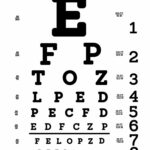The digital age has bequeathed us a panoply of linguistic shortcuts. These truncated expressions, initially spawned in the fervent crucibles of internet forums and SMS messages, have subsequently permeated our everyday vernacular. Among these cryptic abbreviations, “ion” has emerged. Its genesis, application, and connotations are more multifaceted than a cursory glance might suggest. Prepare to delve into the semantic labyrinth of “ion” and unearth its true meaning in the context of text-based communication.
The Etymological Genesis of “Ion”
The abbreviation “ion” is, in its purest form, a contraction of the word “I don’t”. This truncation mirrors similar elisions common in textspeak, such as “idk” for “I don’t know” or “imo” for “in my opinion”. These abbreviations arose out of a desire for brevity, a necessity when composing messages on devices with limited character counts or when striving for expeditious communication. The evolution of language is a fascinating study, isn’t it? Efficiency often dictates form.
Deciphering the Contextual Nuances
The significance of “ion” is deeply intertwined with its contextual embedding. It is seldom used in isolation; its meaning is amplified, and indeed determined, by the accompanying words and the overall tenor of the conversation. Consider these examples:
- “Ion care what they think.” In this instance, “ion” functions as a direct substitute for “I don’t”, conveying a sentiment of indifference or apathy towards the opinions of others. It underscores a lack of concern.
- “Ion understand why you’re upset.” Here, “ion” expresses incomprehension or an inability to grasp the rationale behind another person’s emotional state. This highlights a communication breakdown.
- “Ion think that’s a good idea.” This usage indicates a disagreement or a reservation about a proposed course of action. It suggests a difference in opinion.
Without the surrounding words, the intention behind “ion” would remain nebulous. Context is the lodestone that guides us toward understanding.
The Spectrum of Tonal Inflections
Beyond its literal meaning, “ion” also contributes to the overall tone of a message. Its informal nature lends itself to casual conversations among friends, family, or acquaintances. Its use in formal communication, such as business emails or professional correspondence, would be deemed inappropriate. It would likely convey a sense of unprofessionalism or disrespect.
The tone imbued by “ion” can range from playful nonchalance to blunt dismissiveness, depending on the specific situation. For instance, “Ion wanna go” spoken with a smile projects a very different vibe compared to a terse “Ion care” delivered with crossed arms. The visual cues or auditory inflection absent in text are substituted by the reader’s interpretation and understanding of the relationship with the sender. Nuance is crucial, even in abbreviation.
Synonyms and Semantic Equivalents
While “ion” serves as a convenient shorthand for “I don’t”, several alternative expressions can convey similar meanings. These include:
- “Don’t”: The unabbreviated form, suitable for more formal contexts.
- “Do not”: An even more emphatic and formal negation.
- “I do not”: A complete and grammatically correct statement, devoid of any ambiguity.
- “I’m not”: Can be used if the subject matter leans towards a state of being rather than an action. “Ion like it” could be “I’m not keen on it”.
The choice among these options depends on the desired level of formality, the specific context, and the intended audience. Diversification in word choice maintains linguistic vibrancy.
The Perils of Ambiguity
Despite its widespread usage, “ion” is not without its pitfalls. Its reliance on context can lead to misinterpretations, especially in situations where the reader is unfamiliar with textspeak or lacks a clear understanding of the sender’s intent. The absence of nonverbal cues exacerbates this problem, making it difficult to discern the true meaning behind the abbreviation. Miscommunication, in the digital realm, is a prevalent hazard.
The Future Trajectory of “Ion”
The longevity of “ion” as a prevalent texting abbreviation remains uncertain. As language continues to evolve and new forms of communication emerge, “ion” may eventually fade into obsolescence, supplanted by newer, more efficient expressions. Alternatively, it may solidify its place in the digital lexicon, becoming a permanent fixture of online communication. The ebb and flow of language are unpredictable and captivating.
Regardless of its ultimate fate, “ion” serves as a microcosm of the broader phenomenon of language change in the digital age. It exemplifies the human capacity for linguistic innovation and adaptation, highlighting the ways in which technology shapes our communication patterns. The internet, after all, is a powerful engine of linguistic evolution.
Beyond the Binary: Deeper Implications
Ultimately, understanding “ion” is not merely about decoding a simple abbreviation. It’s about comprehending the subtle nuances of digital communication, the ever-shifting landscape of language, and the profound impact of technology on human interaction. Consider this: the mere existence of “ion” reflects a societal prioritization of speed and efficiency, perhaps at the expense of clarity and precision. This trend warrants careful consideration.
So, the next time you encounter “ion” in a text message, remember that it represents more than just a shortened phrase. It’s a symbol of our evolving digital culture, a testament to the enduring power of language to adapt and transform itself in response to the ever-changing demands of the modern world. It is a tiny, potent marker of our digital present.








Leave a Comment